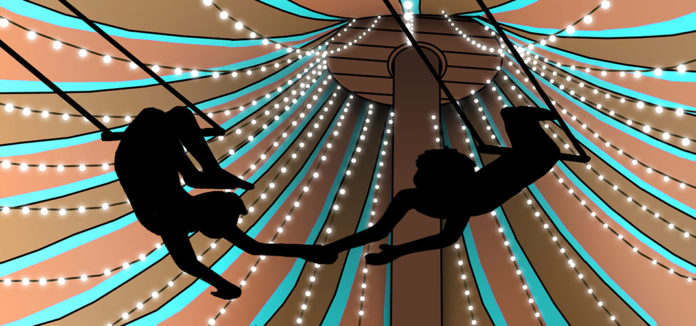Publishing her first book, Fulfilled, about how the science of spirituality can lead to a more happy and meaningful life, the New York City psychiatrist sits for a Session.
The Gene: An Intimate History
From the Pulitzer Prize-winning, bestselling author of The Emperor of All Maladies—a magnificent history of the gene and a response to the defining question of the future: What becomes of being human when we learn to “read” and “write” our own genetic information?
Buy It on AmazonGrant Snider
This Wichita, Kansas orthodontist, who is also a New Yorker-published illustrator and big thinker, answers some major questions as he unveils his first book The Shape of Ideas.
WHY “BE YOURSELF” IS TERRIBLE ADVICE
Self-knowledge is tricky business and often misconstrued. For instance, saying, “I know myself, and I don’t like outdoor festivals” is less about self-knowledge and more about preference.
And preference can get in the way of potential. It limits us. When people push past their preferences — that is, beyond their comfort zone — they experience parts of themselves they didn’t know existed.
It’s why I say to my patients, “Consider doing something that is un-you.” Say yes instead of the safer no. You won’t regret it.
I have first-hand experience. A few summers ago, my children were invited to a trapeze party. When the instructor asked me to join, I thought, “How absurd — swinging from a trapeze is definitely not for me.” But my children insisted. I climbed up to the narrow platform, put my toes over the edge, clung on to the bar quite literally for dear life, and stepped off.
It was terrifying and completely humiliating thanks to an undignified dismount face-planting in the net. And it was worth every thrilling second. Doing the “un-me” thing felt good. Exhilarating. It enabled me to fly above my expectations.
Don’t let the person you think you are get in the way of being the person you can be. Reimagining yourself is healthy and necessary. This summer, embrace being “un-you.”
I wish you all the best,
Dr. Samantha Boardman
How to Achieve That Inner Glow
Our mothers may have told us not to judge a book by its cover, but research shows we cannot help it. In fact, according to research, the moment we first lay eyes on someone we make snap judgments about who they are.
A study from Princeton, entitled “First Impressions: Making Up Your Mind After a 100-Ms Exposure to a Face,” found that it takes a tenth of a second to draw conclusions about other people’s attractiveness, trustworthiness and competence:
Before we can finish blinking our eyes, we’ve already decided whether we want to hire, date, hate, or make friends with a person we’re encountering for the first time. These first impressions color the way we interact with other people from that point forward. And all of this happens outside of our awareness, in the unconscious processes of the mind…
Consider how the complexion of a fresh-faced healthy individual compares to that of a lifelong chain smoker or sun worshipper. The health of someone’s skin speaks volumes and contributes to the snap judgments we make about them. It is no surprise that a radiant complexion affects how healthy and attractive someone appears.
The good news is that there is a simple way to get that inner glow and it doesn’t require expensive creams or beauty treatments. It is by eating a healthy diet. According to researchers:
What we eat and not just how much we eat appears to be important for a healthy appearance. The only natural way in which we can make our skin brighter is to eat a more healthy diet high in fruit and vegetables.
They found that a diet rich in fruit and vegetables, especially carrots and tomatoes, gives a golden glow that is perceived as more attractive than a suntan.
Coco Chanel said:
Elegance is when the inside is as beautiful as the outside.
By eating well, you can achieve both.
I wish you all the best,
Dr. Samantha Boardman







